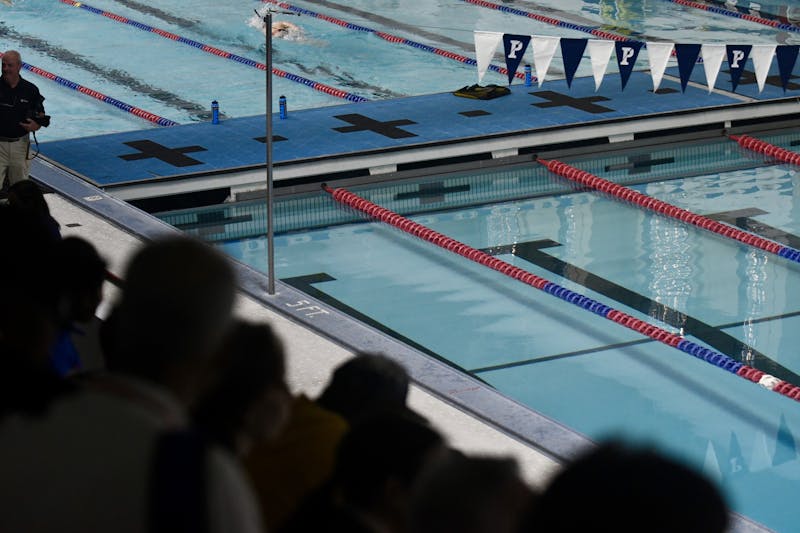
This past September, I caved in. The permeating and ambitious spirit of Wharton finally crumbled my willpower — I made a LinkedIn. A decision I made with reluctance has shown to be worthy of my original trepidation. Scrolling through the feed, it is natural to feel overwhelmed by announcement after announcement of impressive internships, job offers, and other opportunities touted by one’s own connections. This stress is magnified during internship season. The anxieties stemming from internship season are twofold: Some are founded in the general pressures of competition and the nagging feeling that one should be doing more, others are associated with the pandemic’s continued impact. As students are once again feeling the pressure of summer and the internships it potentially holds, it is vital to stay grounded in one’s own interests and remember the pandemic’s lasting effects on the internship landscape are still affecting some industries and opportunities.
To write this piece I did something I try to avoid doing: I actually checked the homepage of my Linkedin. A vortex of wildly impressive achievements pulled me deeper and deeper in as I found myself scrolling for much longer than I anticipated. Unsurprisingly, I felt completely inadequate after my journey down this business-minded, professional rabbit hole. I am currently studying philosophy, politics, and economics, a major that many use to launch consulting careers, no doubt using their interdisciplinary education to stand out amongst the crowded sea of students studying solely economics or finance. I have zero interest in consulting or finance, yet, I cannot help but feel disappointed in myself seeing my peers accept impressive summer analyst positions at Goldman Sachs, or J.P. Morgan Chase & Co.
The pressure to explore these industries is empirically demonstrated by the consistent and vast quantity of Penn graduates who eventually accept jobs in finance and consulting after graduation, likely made possible by their internship experiences in the years prior. Out of the Class of 2020 graduates who responded to Penn Career Services’ Career Plans Survey, 30% of the employed students were in financial services and 20% in consulting. These results were also seen in years prior, with finance and consulting leading the list for the Class of 2018 Penn graduates. With all of these students pursuing careers in these fields, it can augment the existing pressure other undecided, or less business-minded, students feel to make money and have a prestigious career. This effect trickles down into internship season, so students, including myself, feel lesser for not wanting financial services or consulting-related internships.
While there is no perfect solution to combating this internal pressure, it is important to take a step back and not fall into a trap merely because of Penn’s environment. While taking an internship in this field has the potential to lead to a lucrative career, money does not equate to happiness. According to a 2010 study, as long as individuals meet a minimum income of $75,000 — approximately $90,000 today — additional money will not provide any additional happiness. Following passions over following money is more important, so when it comes to internships, following potential interests should take precedence over doing what others say is the “right path.” Making an individualized choice of what industries to explore is of greater importance than blindly following what the majority of the Penn student body does.
Regarding the COVID-19 aspect of internship season, this summer still poses some problems for certain industries and internships. While nothing compares to the utter disarray that many students’ internships were thrown into last summer as internships were canceled or moved online last minute, some remote aspects and limited opportunities still persist. This summer it has been reported, according to websites designed to help students find internships, that some companies who usually take on undergraduate interns are no longer doing so due to resource constraints or other pandemic-related challenges. Those that are continuing their internship programs may do so remotely, including major companies like Google. This factor leads many students to feel that they are gaining less experience and facing more challenges with developing workplace connections than their in-person peers. Many of these obstacles may just depend on the industry one is looking into. Personally, I have faced challenges finding law-related internships as an undergraduate, since law students are given preference. In an internship season as unusual as this one, comparing one’s own interests and opportunities to that of others can add undue stress to an already overwhelming time.
The search for summer internships can create a variety of anxieties arising from internal conflicts over the balancing act between passion and prestige for some students. If this is not your concern, perhaps the changes to internships stemming from the lasting effects of COVID-19 have changed your four-year plan. While these concerns may be valid, they should not come from a place of comparison. In other words, don’t worry about finding a consulting internship if you only think you should find one because your classmate is doing so; don’t feel insecure about your remote internship because your roommate is spending the summer in Washington, D.C. Comparing gets you nowhere. Log out of LinkedIn and remind yourself of what you’re passionate about and where the best opportunities are that are available to you because treating the summer like a competition won’t be of any benefit.
ISABELLA GLASSMAN is a College sophomore studying philosophy, politics, and economics from Suffern, N.Y. Her email is iglass@sas.upenn.edu.
The Daily Pennsylvanian is an independent, student-run newspaper. Please consider making a donation to support the coverage that shapes the University. Your generosity ensures a future of strong journalism at Penn.
Donate






